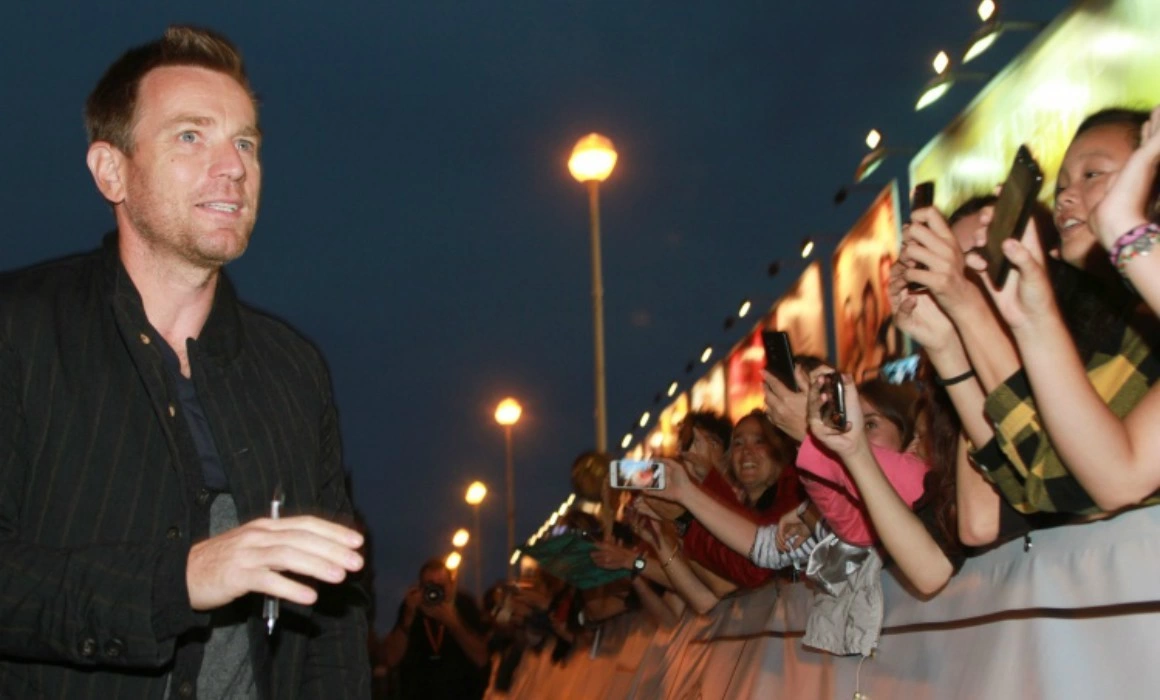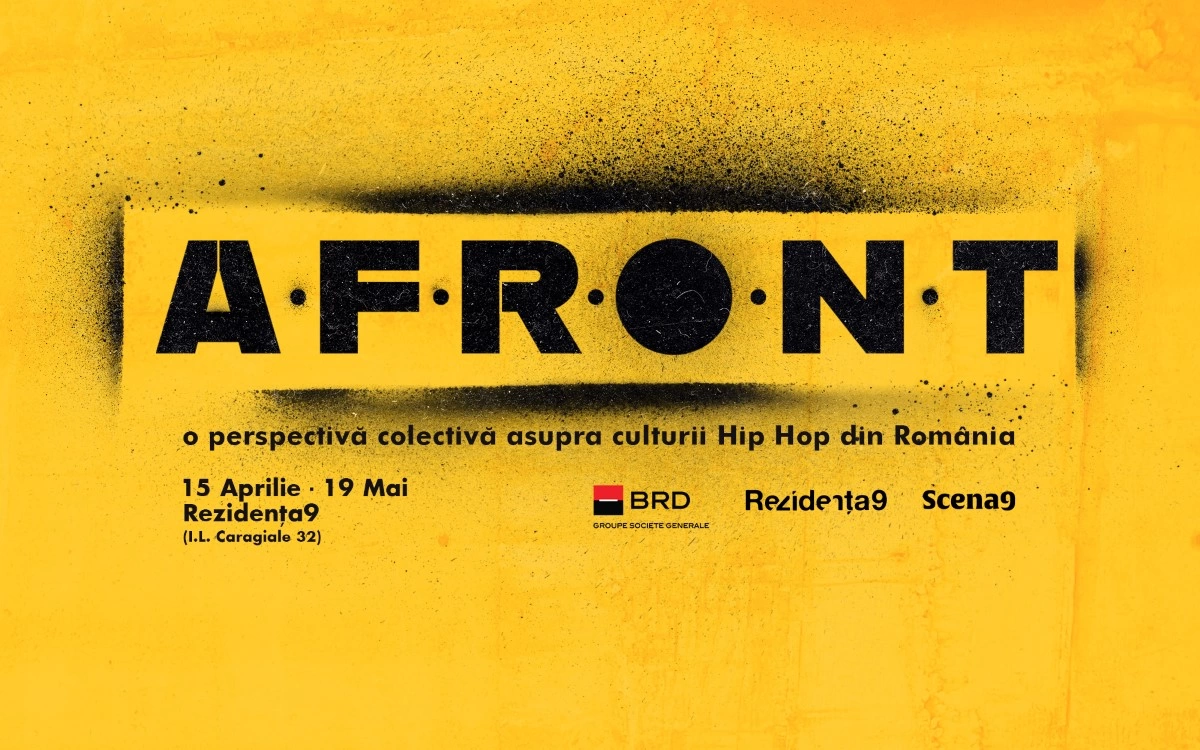Day #3 in San Sebastian: on the fringes of reality, history, fiction, and adaptation. Oliver Stone compares Obama’s America with Nazi Germany, “The Act of Killing” retrospective brings in several outstanding titles based on recent historic traumas, McGregor does American Pastoral and Hong-san soo baffles the viewer with characters with multiple identities.
On day #3, I ran completely out of time, what with writing, movie-watching, and the press conference-going. And, y’know, trivial things like your occasional meal and 5 hours of sleep/night. Festivals are exhausting. Yeah, duh.
I did manage to stumble upon two of my favorite things when traveling: a colorful farmers’ market in Bretxa and the local Fnac. I'll just take this opportunity to plead: Please, Fnac, come to Romania. We like big corporations here, it seems.
Oh, and I also stood real close to my pre-teenage crush, Joseph Gordon-Levitt *swoons* It's always so strange to be reminded these projections of ours that we call stars are actual people.
Why all the details? Because the notions of reading, writing, history, real-life figures and events, all wrapped up as fiction in the cinematic form, tie in with my San Sebastian experience on day #3. It was governed by the tension between reality and several forms of fiction and these questions:
How does one fictionalize a controversial living figure? What role do historic documentaries and fiction films play in our identity building self-narratives? How much does the book matter, when we discuss the film adaptation of an American contemporary cult classic? And how much can one trust an unreliable narrator in a movie about relationships, who seems to be experiencing multiple personalities of his own girlfriend?
My September 22 in Donostia was all about navigating the fine line between reality and the narrative arts.
Snowden. Oliver Stone: “I didn’t want to make him a hero. He is a hero.”
At the press conference that prefaced the official screening of Snowden, Oliver Stone pointed out that it’s sheer coincidence his movie is coming out in a U.S. presidential election year. So far, neither candidate has expressed any intentions of showing lenience towards Snowden. The director smirked and said that he would like to see President Obama, “in his infinite grace” and few months of term he has left, grant the whistleblower a pardon.
"I didn’t want to make him a hero," Stone said of his protagonist. “He is a hero". The director met with Snowden nine times in Moscow: "As to Mr. Snowden being a white knight: I spent with him several hours, I never saw him be anything else but polite. It’s what he is. He seems transparent enough, he doesn’t seem to have any sort of secret life, except for what he does at night on the Internet and that he exposes to the world. I didn’t see any flaws in him, or I would’ve exposed them myself. You don’t make up flaws for people.”
The movie, the director added, was made with no agenda, hidden or otherwise. He did, however, explain that many people in the United States have been positively impacted by Snowden's actions: on the one hand, there have been reforms in matters of privacy in the States—minor ones, but still, better than nothing. On the other, encryption has become far more widely accepted in the wake of Snowden's leaks. Stone pointed out that far more IT companies than telephone companies have updated their privacy policies, as the latter, he says, are afraid to lose their customers.
Stone reiterated the importance of privacy, Snowden's core value. This right and privilege, as the director called it, is now being blatantly invaded. Actor Joseph Gordon-Levitt interjected to say that it’s fine to share aspects of your life on social networks, “if that’s your mode of expression" but highlighted the importance of having a choice on whether or not you want to share.
Stone said that, while he doesn’t think the team was under surveillance during production, they did take several necessary precautions. They kept the script offline, had their phones checked against being bugged, and encrypted all communications between them. One journalist intervened to wonder aloud how Gordon-Levitt managed to keep his sanity while working on such a delicate movie. Stone was quick to praise his lead: “it’s because he’s a good actor” (general laughter).
Stone also highlighted the importance of Snowden’s 9-year-long relationship with Lindsay Mills: “I don’t think he would’ve made the same decisions if he hadn’t known this woman.” In creating her character, Shailene Wooddley met with Mills twice. The actress explained that the relationship is essential for the character, because “we forget that Edward Snowden is a human being on a journey, like the rest of us. I think what the relationship brings to the film is the ability to empathize and to relate with his character. And you don’t have to agree or disagree with what he did to be able to relate. (…) We can all relate to a deep love that raises the stakes on every decision in our lives.”
Gordon-Levitt said he also met with Snowden for several hours—this was valuable because, while he could learn about his politics without meeting him, the encounters helped him study his mannerisms.
Oliver Stone stated that, in making the film, they “talked to everybody we could who would talk to us. I must say it’s very difficult to find this information at all. The NSA is not much talked about. The NSA is very secret”, Stone explained. Since the foundation of the agency in 1952, only three people have spoken out about it: Snowden, and prior to him, William Binney, and Thomas Drake. “You decide what that says. You decide what it is. Some people don’t want to come out and reserve judgment.”
Stone highlighted the importance of President Obama breaking his campaign promise of transparency and how that impacted Snowden. The director said that, while the president seems like “a man of great integrity (…) he’s doubled down on security measures from the Bush administration. He’s gone after eight whistleblowers. Frankly, by now, he’s created the most massive surveillance state that has ever been seen or conceived. Much more so that the East Germany Stasi.”
Stone returned to this analogy when explaining why the current threats of terrorism needn’t be an incentive for us to sacrifice our transparency. “I’ve heard that many times before. And the Germans heard it in 1930. It was the first thing the Nazis did in 1933: «We’re here to protect you!» (…) It is the death-knell of true liberty, it is the beginning of authoritarianism. And terrorism is a very dangerous thing, you say. Terrorism can be fought, and I agree, but terrorism is not the most terrible thing to have happened in human history. So, in the name of terrorism, to change all the rules, to me, is not a marginal response, it is an extreme response. Let’s beware of fascists and tyrants who take over our government and tell us: «We’re here to protect you.» I don’t want that kind of protection.”
American Pastoral (USA, 2016. Dir. Ewan McGregor)
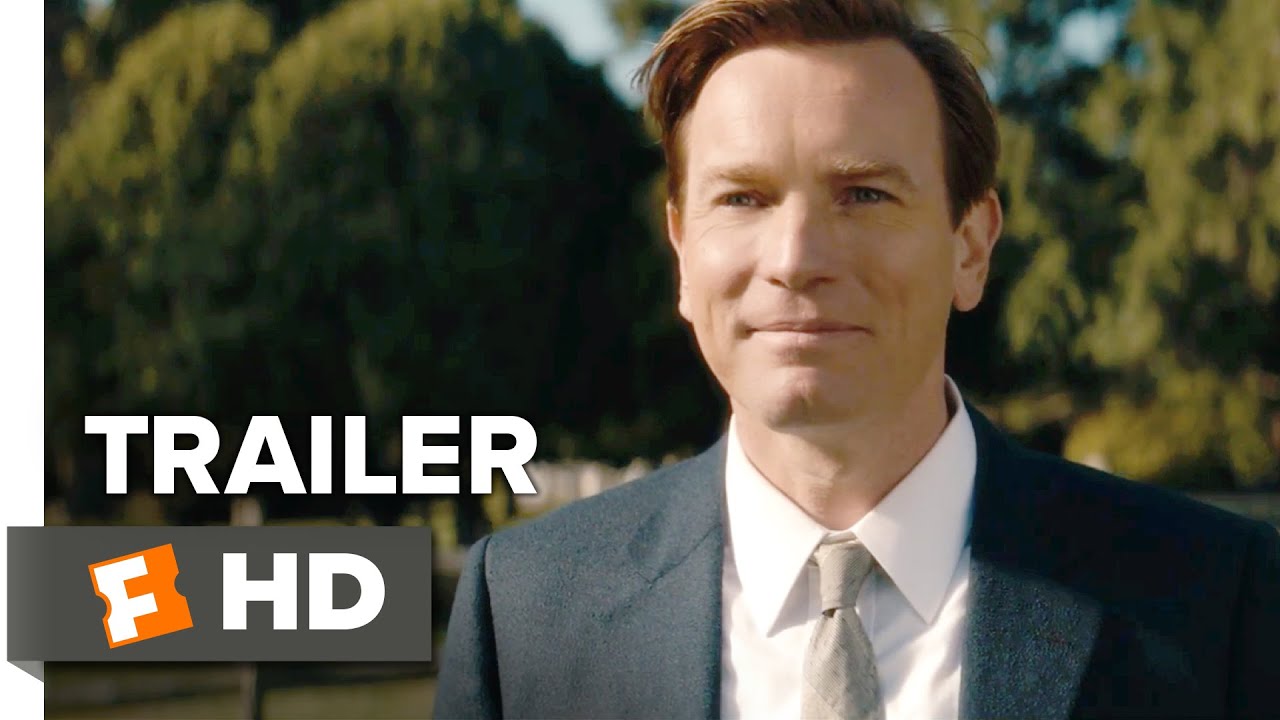
The story: Ewan McGregor directs himself, Jennifer Connelly, and Dakota Fanning as the family of Seymour “Swede” Levov in Philip Roth’s cult classic novel of the same title. For those who haven’t read the book, the tl;dr is that the daughter of the perfect American family becomes an estranged, radical leftist terrorist in the 1960s.
The talk of the town: Ewan McGregor has four daughters of his own, which did, indeed, prompt his fascination for the script written after Roth’s book. And while the novelist himself gave his blessing for the adaptation of the book, most reviewers thus far have thrashed the Scotsman’s directorial debut. In most cases, the critics decry the film’s comparative lack of subtlety, when judged side by side with the book—or, bafflingly, its ‘stifling fidelity’ to Roth’s text.
The good: With the possible exception of McGregor himself, whose Swede seems at times bidimensional in his wholesomeness (and, unlike the one in the book, doesn’t cheat on wife Dawn with their daughter’s therapist), the movie delivers stunning performances through-and-through. Jennifer Connelly’s Dawn is at once as fragile and glamorous as she need be, Dakota Fanning makes for a hypnotic, conflicted older Merry, while child actor Hannah Nordberg is a heart-wrenching, stuttering, precociously sexual Merry at 12. Add to this impeccable cinematography, costumes, and period props, plus some seriously good writing in the relationship between Swede and Mr. Levov Senior.
The bad: As many critics have noted, the movie is mostly talk and not so much action. McGregor’s detractors, who have gone as far as to call his directorial debut ‘a dud’, ‘lackluster’, and even ‘hopeless’ say his film lacks the book’s sense of urgency and psychological finesse.
The verdict: I’m not one to compare film adaptations to their original literary texts. While I have read Roth’s Pastoral, I found McGregor’s endeavor a daunting task with a balanced result. Yet, for those who are enamored with the book (as McGregor himself obviously proves he is, too, with his directorial choices), make note that this adaptation is a different breed of animal: a tamer one, if anything.
Dangsinjasingwa dangsinui geot / Yourself and Yours (South Korea, 2016. Dir. Hong Sang-soo)
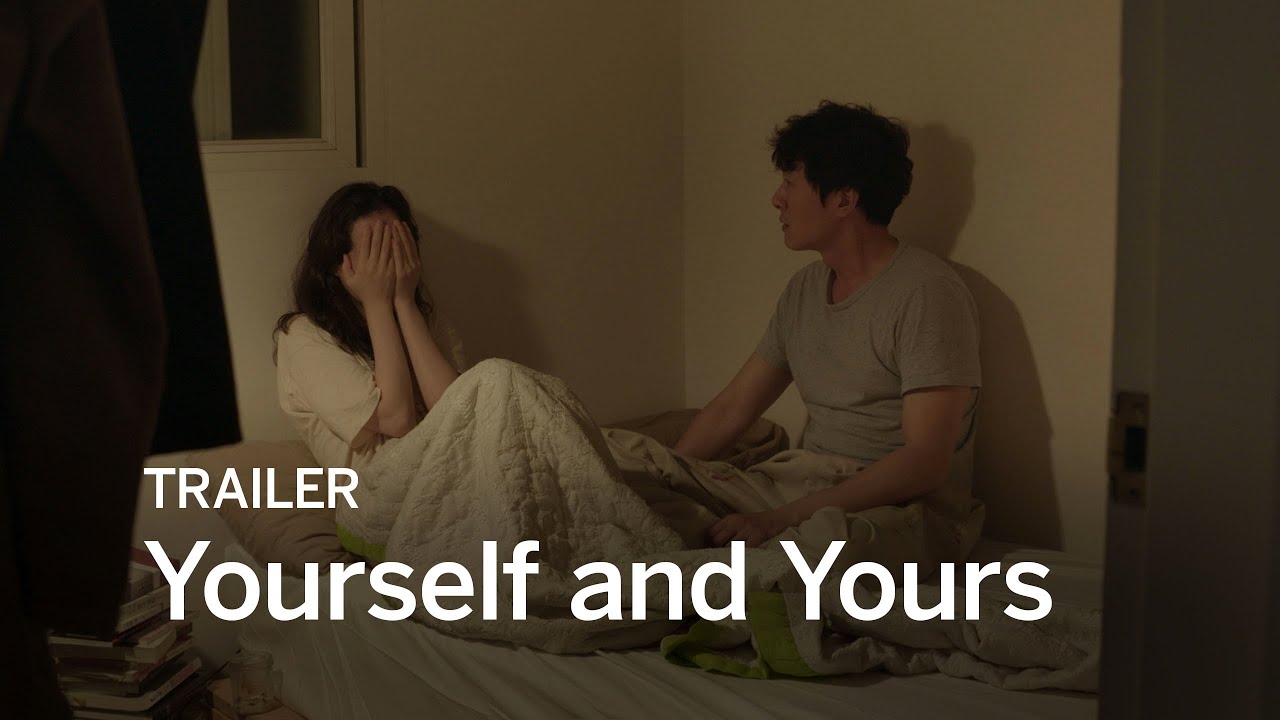
The story: Painter Youngsoo is upset because his mother is gravely ill and his girlfriend Minjung keeps drinking too much. According to a rumor, she’s been constantly seen drinking in the presence of other men around town. Youngsoo says he would like to marry her, but, at the same time, can sense his relationship is on the rocks. And Minjung’s behavior is driving him out of his mind, as it plays on his need to control her behavior (but especially her drinking).
The talk of the town: Deemed ‘the Korean Woody Allen’, Hong Sang-soo has produced yet another exploration on the elusive and often involuntarily tragicomic nature of relationships. This one reverses the premise in Buñuel’s Obscure Object of Desire, in that it has a single actress play what seem to be several distinct parts/personalities. This film is perhaps best understood as a lesson in learning how to cope with controlling tendencies in romantic relationship. Hint: too much control is never a good idea.
The good: The catchy, even glib score by Dalpalan, which punctuates key moments in the narrative. Most performances, with a remarkable mention for Lee You-young (Minjung). The Korean actress has the range to be both an alluring minx and deceptively naïve, an endearing drunk, and generally fascinating enough to tell a date “I have never met a truly impressive man” with the grace of a kiss.
The bad: As most narratives that play upon the trope of the unreliable narrator, Yourself and Yours, too, can become unnerving at times. Woe be the viewer who actively tries to figure out which Minjung is the ‘real’ one, or whether Youngsoo is just slightly unhinged and is playing out the worst fears about his relationship. Also, while this movie is as structurally loose as Sang-soo has accustomed audiences, the Hollywood Reporter notes it is far less formally daring than last year’s Right Here, Right Now.
The verdict: Give this talker a chance, even if Korean cinema doesn’t tell you anything. You’re in for a surprise that’s both playfully sweet and short (at under 90 minutes it’s a much-needed respite, compared to most European festival titles). You might just learn a thing or two about what fools love makes of us all.
Real-life violence on film
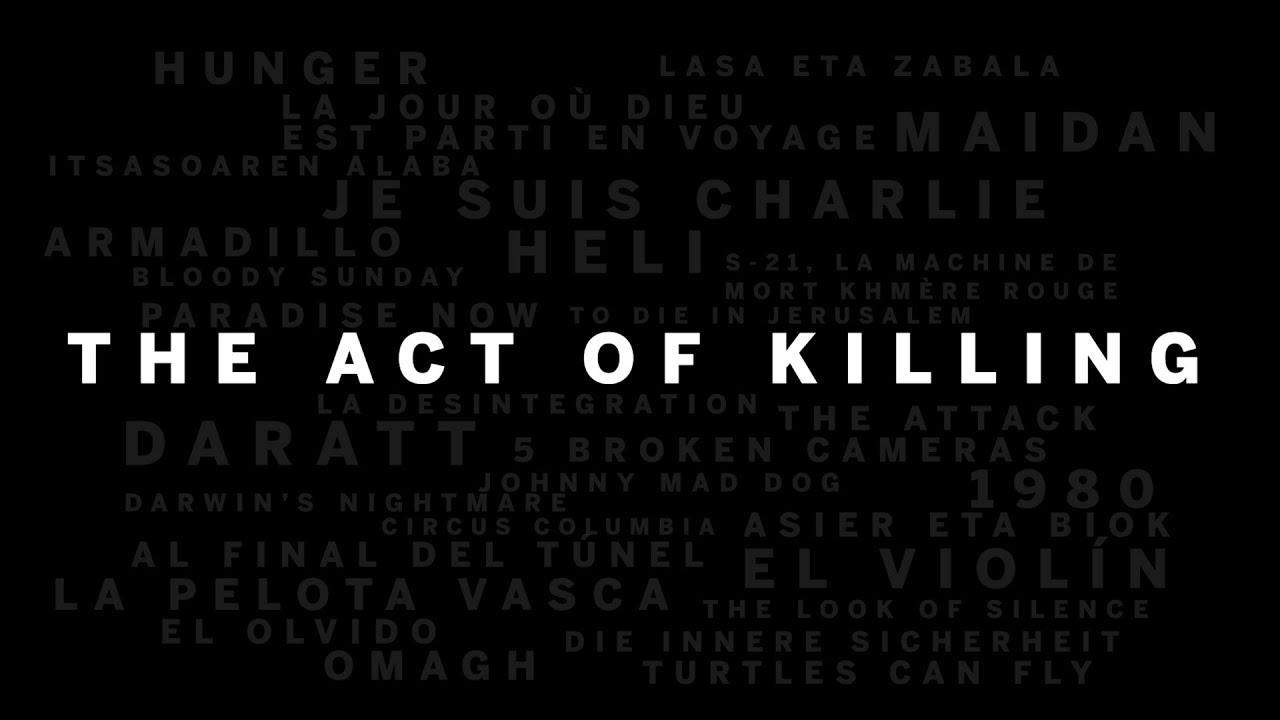
This contemporary retrospective of documentaries and fiction films that narrate wars, revolutions, massacres, terrorism, and coups includes 40 titles produced over the past 13 years. It is an incredibly well curated list to remind the film fan that the movie camera has been around, documenting and then retelling violent realities in transformative ways for virtually as long as the history of cinema. It would be nearly impossible to pick one or three, or even ten recs from this list—I like to think of it as more of a map of all the conflicts the world near and far has seen over the past decades. So, if it helps any, here’s a highly personal selection of stops on this route of movies. (Let it be noted that I have purposely excluded Joshua Oppenheimer’s films, both the one that lends the selection its title, as well as the more recent The Look of Silence. That’s because, in my book, they’re must-watch no brainers. Feel free to disagree, though, in the comments section).
Bloody Sunday (UK – Ireland, 2002. Dir. Paul Greengrass) Not a documentary, but a documentary-like drama about the civil rights protests and subsequent British retaliation that took place in Ireland, on January 30, 1972.
The Basque Ball: Skin against Stone (Spain 2003. Dir. Julio Medem) A hugely complex, information rich history of the Basque independence movement in northern Spain, in which director Medem questions personal, as well as wider scale political choices.
S21: The Khmer Rouge Death Machine (Cambodia – France, 2003. Dir. Rithy Panh) Why did the Khmer Rouge establish the killing prison S21? Director Rithy Panh interviews prisoners and guards to seek for answers, in a movie that set the stage for Oppenheimer’s own later forays into mass killings in Asia.
Turtles Can Fly (Iran – Iraq, 2004. Dir. Bahman Ghobadi) An award recipient at San Sebastian, this poignant film tales the tale of a Kurdish village on the border between Iran and Turkey, where all the villagers are desperately trying to watch satellite transmissions of the news announcing an impending American attack. The arrival of a wounded boy from another village shows them just how close the war really is.
Paradise Now (Netherlands - Israel - Germany - France – Palestine, 2005. Dir. Hany Abu-Assad) Two Palestinian childhood friends are sent to Tel Aviv to blow themselves up in a suicide attack—but things don’t go quite as planned.
Dry Season (Chad - France - Belgium – Austria, 2006. Dir. Mahamat-Saleh Haroun) The civil war in Chad raged on for 40 years, but when the government announces amnesty for war criminals, one grandfather sends his grandson on a quest to avenge his murdered father.
The Day God Walked Away (Belgium – France, 2009. Dir. Philippe Van Leeuw) Though at least as horrifying as some of the closer tragedies, the Rwandan genocide is not something the Western world considers too often. This movie offers the first-person perspective of a woman faced with the approaching horror.
Cirkus Columbia (Bosnia and Herzegovina - France - Belgium - UK - Germany – Slovenia, 2010. Dir. Danis Tanović) The war is over and Divko Buntic, now rich and successful after 20 years in Germany, comes back to his small town in Bosnia and Herzegovina, to throw out his wife and be reunited with his estranged son.
The Disintegration (France – Belgium, 2011. Dir. Philippe Faucon) In a district of Lille, Ali, Nasser, and Hamza, all of them 20, befriend the older, manipulative Djamel, who legitimizes their rejection of society.
5 Broken Cameras (Palestine - Israel – France, 2011. Dir. Emad Burnat, Guy Davidi) A Palestinian farmer chronicles his non-violent resistance to the Israeli army. The act of filming itself soon comes to affect his family life.
Maidan (Ukraine – Netherlands, 2014. Dir. Serghey Loznitsa) A dramatic documentary of the protests and subsequent violence in the winter of 2013-2014 in the Ukrainian capital of Kiev.
Je suis Charlie (France, 2015. Dir. Daniel Leconte, Emmanuel Leconte) A moving tribute to the victims of the Charlie Hebdo attacks on January 7-9, 2015, in Paris.
Main photo: Ewan McGregor arriving in San Sebastian, by Asier Garmenida for San Sebastian International Film Festival
